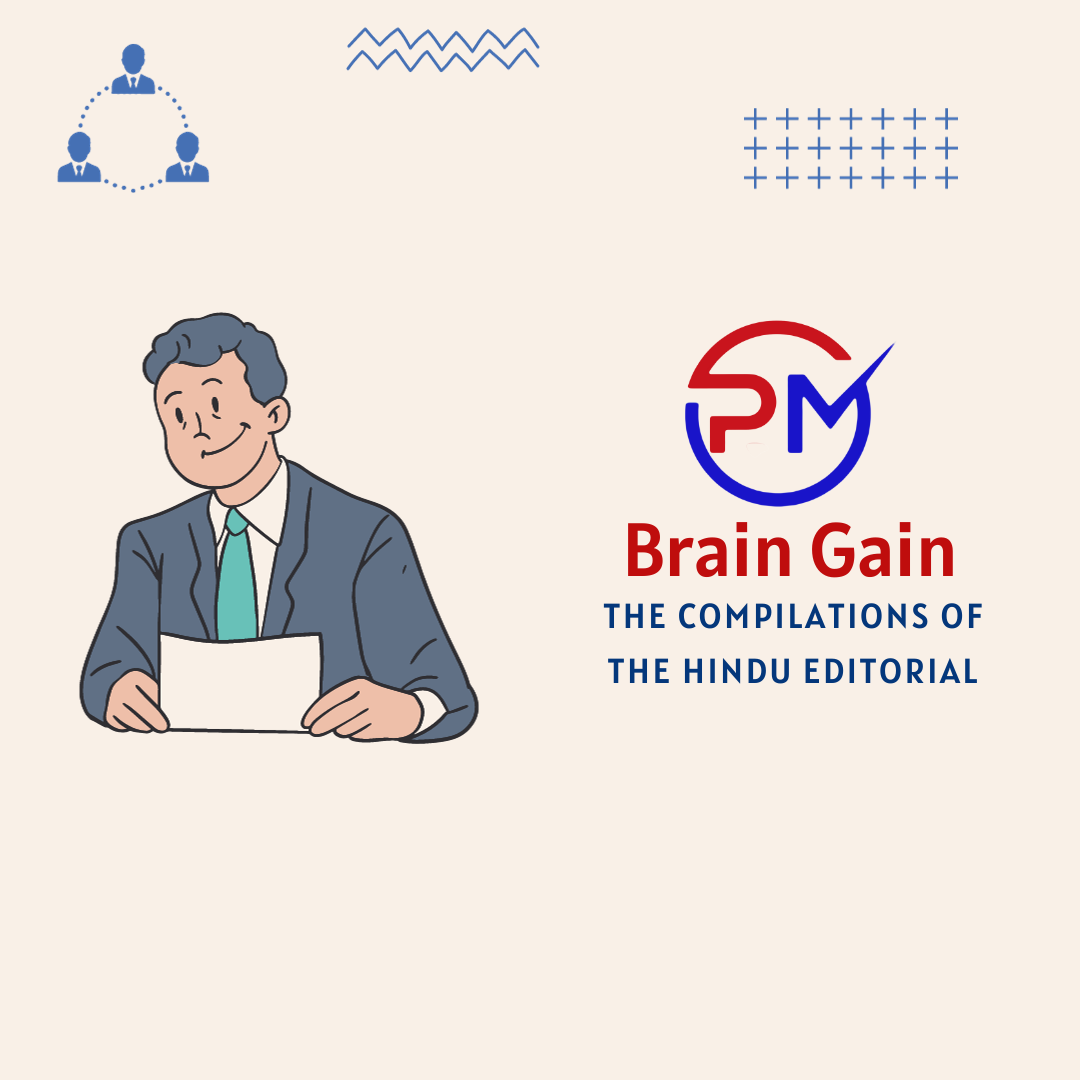Editorial 1 : Regional turmoil: On the West Asia situationContext: West Asia needs a new security equilibrium with the Palestine issue at the centre.IntroductionWest Asia is a subregion of Asia, bounded to the west by Europe, to the east by South Asia, to the north by Central Asia, and to the south by Africa and the Arabian Sea.Armenia, Azerbaijan, Bahrain, Cyprus, Georgia, Iraq, Israel, Jordan, Kuwait, Lebanon, Iran, Oman, Palestine, Qatar, Saudi Arabia, Syria, Turkey, United Arab Emirates, and Yemen are all considered to be in the West Asian region.The area is renowned for having a variety of topographies, such as mountains, beaches, and deserts. Numerous significant rivers, including the Tigris, Euphrates, Nile, and others, are also found there. War in West Asia (No more Israel, Hamas affair)The war on Gaza is no longer about Israel and Hamas. Israel has carried out targeted strikes in Lebanon and Syria, killing Hezbollah, Hamas and Iranian commanders.From southern Lebanon, Hezbollah is exchanging fire with Israeli troops. Iran-backed militias in Syria and Iraq have attacked U.S. forces in Syria and Iraq.The Houthis, the Iran-backed rebels of Yemen, have turned the Red Sea into a battlefield. The U.S.’s air strikes in Iraq, Syria and Yemen, seek to retaliate against Shia militias.As chaos and instability spread, Sunni Islamist militants attacked Iran, killing at least 100 people.In the latest escalation, Iran claims to have destroyed an Israeli intelligence outpost in Iraq’s Kurdistan and training camps of Sunni Islamists in Syria and Pakistan, in air strikes. Case of regional AnarchyThis is now a classic case of regional anarchy where countries are taking unilateral military measures to address their perceived security challenges, throwing international laws and the idea of sovereignty, the bedrock of the international system, to the wind, thereby risking a wider all-out war. Before the October 7 attackJust weeks before the October 7 attack, Jake Sullivan, the U.S. National Security Adviser, had said “the Middle East is quieter today than it has been in two decades”.The Abraham Accords were on a strong footing, and Saudi Arabia and Israel were moving closer towards normalisation. Iraq had become quieter; Gulf Arabs and Iran had reached a rapprochement; and a ceasefire was holding in Yemen.Most of these changes, however, ignored the oldest crisis in the region — Israel’s continuing occupation of the Palestinian territories. Implications of October 7 attack!The October 7 Hamas attack and Israel’s subsequent vengeful offensive in Gaza have not only brought Palestine back to the centre of West Asia but also lit fires, triggering perhaps the deepest security crisis in the region since 1967.The involvement of non-state actors and the absence of an off ramp complicate matters. After 100 days of war with Hamas, Israel has achieved little in Gaza.The Houthis, a militia that survived seven years of Saudi bombing, are unlikely to be deterred by America’s strikes. Even though Iran wants to showcase strength and boldness, it cannot mask its inherent weakness, which also makes it unpredictable.The old order, anchored by America’s domineering regional presence, is in tatters. Way ForwardWhat West Asia needs is a new security equilibrium. There has to be an immediate ceasefire in Gaza, and peace between Israel and Palestinians could be used as a springboard for further talks aimed at regional security between the main stakeholders — Israel, Arab nations, Iran, the U.S. and their respective allies and proxies.
Editorial 2 : The fading role of universities as conscience of societyContext: With higher education centres turning into carriers of political propaganda, there is little room for academic freedom or informed public discourseIntroduction
The University Grants Commission (UGC)’s directive to universities and colleges in the country to install the Union Government’s Beti Bachao Beti Padhao (BBBP) logo on their premises should be treated as another attempt to curtail academic freedom, which is already under siege.University Grants Commission (UGC) The UGC was founded in 1953 and became a statutory organization in 1956 when the UGC Act was passed.The UGC is in charge of organizing, setting, and upholding higher education standards.Universities in India are recognized by the University Grants Commission, which also awards funding to these approved colleges and universities.New Delhi is home to the UGC’s head office.The UGC possesses the exceptional distinction of being the only grant-making organization in the nation with dual mandates: financing and organizing, establishing, and upholding standards in higher education institutions. |
Other similar incidentsEarlier, they were asked to conduct activities such as generating awareness on G-20 meetings and Swachhatha campaigns.As a repeat of such directives, the UGC, in a letter of December 1, required the colleges to create selfie points featuring the Prime Minister.The aim of the selfie point, according to the letter, is to create awareness among the youth about India’s achievements in various fields, particularly the new initiatives under the National Education Policy 2020.- However, such moves aimed at advancing the political agenda of the ruling regime through the universities would seriously dilute the academic institutes’ freedom and ability to follow their agenda of teaching and research that finally generates new ideas.
Several attempts to throttle academic freedom.Indian Institute of Science (IISc) — the country’s top-ranking institute — had to call off a discussion on the Unlawful Activities Prevention Act (UAPA), organised by its students and faculty.Last March, the Jawaharlal Nehru University (JNU) administration decided to impose fines to the tune of ₹20,000 for protesting on the campus — a decision withdrawn later.The sanctity of academic freedom recently came into question when two important scholars resigned from their positions at Ashoka University following the publication of a paper that argued that the ruling party won a disproportionate share of seats in the 2019 Lok Sabha polls.Can Democracy survive without dissenters and critical thinkers? What better platform than an academic institute to hold such discussions? Such discussions are crucial in a functioning democracy, regardless of anyone’s ideology or belief system.Placing restrictions on the articulation of one’s opinion or ideas can negatively impact academic work and hurt the research environment. Reflections in an indexIndia’s academic freedom index is in the bottom 30% of 179 countries, according to last year’s report of V-Dem Institute of the University of Gothenburg, published on February 2, 2023. India scored 0.38 on a scale of 0 to 1, indicating a decline in freedoms such as research, teaching, academic exchange, institutional autonomy, campus integrity, and academic and cultural expression. This is lower than Pakistan’s 0.43, a record low seen only during the mid-70s Emergency years. Constitutional and Legal protectionThe government has been reportedly intimidating scholars in the knowledge sector through intimidation or imprisonment. Academic freedom is not mentioned in the Indian constitution, but is subsumed in the right to free speech as a fundamental right.However, this freedom is often hindered by sedition laws and misused clauses, causing harm to religious sentiments. Defamation lawsuits are now used as harassment tools against artists and academic scholars.The erosion of academic freedom is also evident in institutional autonomy, including the selection of Vice-Chancellors and heads of academic institutes.The UGC Act of 1956 mandates monitoring university standards, regulating fees, determining faculty qualifications, and setting minimum instruction standards. Interference by state governments as well!The lack of academic autonomy is the bane that extends to the State level, too, and numerous instances of academic interference by the State governments have come to public attention.It has now become a common practice, both at the Central and State government levels, to make university appointments on political considerations rather than merit.The poor leadership of universities thus developed works in tandem with the ruling parties to further their political interests, thus internally sabotaging the autonomy. ConclusionThe political parties, in the larger interest of the nation, must begin consultations with faculty bodies and students’ associations to change the current sorry state of academic freedom and autonomy in the country.We are celebrating the 75th year of India’s existence as a Republic. It is time to remember that we are yet to realise Tagore’s vision of a nation, where the “mind is without fear”, as invoked in his soul-stirring poem, which was written when India was still a colony of the British

